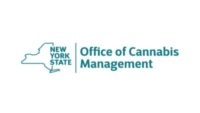Entrance into the cannabis industry is not equally accessible; it’s no secret it tends to be easier for those who are male and white. As a business leader, why should you take on the problem of equal market entrance opportunities? This just may become your company’s competitive advantage.
As a female entrepreneur with a first name associated with being male (and white, maybe a rancher in Wyoming), I have been accidentally invited to and witnessed the consequential shock of more than one exclusive, male-centric event, where any ladies were intended to be accessories and not present for business-talk with the boys. After enjoying their discomfort (and getting over my own), I see these moments as opportunities to advocate for inviting diversity into their discussion, seeking to make small changes to open doors for exponential progress. After all, it wasn’t so bad to have invited the woman, albeit accidentally; it was actually better because it happened.
In a dynamic and challenging industry, increasing diversity access is how to become future-ready. As will be discussed, companies see measurable financial performance and adaptability improvements with relatively small changes in leadership makeup. Here are three overarching tactics for you to increase cannabis market accessibility and champion diversity.
-
Facilitate Access to Capital for Cannabusinesses with Diverse Perspectives
The past two years of pandemic hardship have posed unique challenges for women, especially Black, Latina, and Indigenous women, who have had to put careers on pause to pick up additional heavy burdens of caregiving. Women’s unemployment is four times higher than men’s, and according to Forbes, the situation is worse for women of color.
Overall deal activity for female-founded companies is discouraging and downright dismal for Black female founders, who receive less than 1% of all venture capital investment. This is particularly vexing when considering that women-led or co-founded start-ups generated 78 cents of revenue compared to 31 cents for male-only-led startups over five years. EBIT margins were nine percentage points higher than companies with below-average diversity on their management teams. Relatively small changes exponentially improve operating earnings over operating sales.

It’s always been difficult for women to access capital. Women have historically been cordoned into home-keeping and caregiving roles and are often still expected to balance those capacities alongside a full-time career. Accordingly, female entrepreneurs receive fewer invitations to extra-work events and business relationship-building opportunities, such as pursuing financing, mergers, or joint ventures.
Companies with diverse leadership teams have reported nearly twenty percent higher revenue from innovation. Investors would do well to recognize these are the businesses better able to respond and adapt to changes in customer demand quickly.
-
Increase Diversity Awareness and Facilitate Equal Opportunity
While financial investments are imperative, consider the following non-pecuniary methods of support as part of a full-picture, equitable accessibility solution.
Invite Activity, Provide Mentorship
Businesspeople can play a critical role in accelerating inclusion by actively seeking out people they do not already know. Employers can do this through the non-financial investment of time and resources to grow the pipeline of underrepresented people with skills to serve on investment teams. When under-invested groups bolster one another, the likelihood that investment pans out increases.
Mentoring must be a part of this process, as it provides essential guidance and support for individuals looking to enter or advance within these fields. By creating opportunities for mentorship and collaboration, you can play an active role in breaking down barriers and building a more inclusive economy for everyone.
Open the Door to Accessing Opportunities
Businesses can increase diversity awareness and facilitate equal entry into the cannabis industry by opening the door to events that help connect underrepresented candidates to professional development and capital.
Hosting free webinars is a great way to facilitate learning, conversation, and the exchange of empowering ideas. Webinars allow attendees to ask personalized questions and present your business with a stage from which you can speak about the importance of equity and inclusion.
Consider attending, sponsoring, or running a job fair with a focus on diversity hiring. Diversity hiring practices help businesses identify qualified candidates from different backgrounds, leading to a less homogenous workforce.
Make Continued Education Central
As the President of Oaksterdam University, I see firsthand the importance and empowering quality of ongoing education. I also recognize that not everyone can afford or receives equal access to continued education and accordingly offer this advice to help bolster equitable educational opportunities.
Make partnerships with educational institutions to offer your workforce chances to learn, and ensure they have paid working time to do so. If you can reduce the burden of learning for candidates with extra-work responsibilities, they have a greater chance of absorbing and putting that information into practice. If you have an employee with an incredible entrepreneurial idea, boost them up by offering to pay for a capital-raising class or a fundamental business course they may not be able to afford otherwise.
No one solution will “fix” equal access to education. Every step from open-source databases and free webinars to full college degrees is an incremental movement toward increased cannabis industry participation for traditionally disadvantaged populations.
-
Realize Social Equity Programs Are Not a Catch-All

Even the best-intentioned social equity program cannot accommodate every disadvantage a potential candidate will encounter. Take women as an example: There are many accommodations to consider for female-identifying participants, as they are at a more significant disadvantage in the licensing/permitting and job preparedness process. Some call for women participants qualifying for cannabis equity program services to receive additional funds and services (e.g., funding for childcare) to ensure equal access to opportunity.
The cannabis industry cannot atone for all the damages of the drug war, nor can a nascent industry that is not federally legal pay to uplift all of society. With that said, cannabis industry investors, executives, and workers might be the tipping point back toward baking justice, equity, and access to the laws we operate under. Better yet, we can raise expectations of one another as we do business and ask, “What do you do to increase fair play, diversify your leadership team, and address the imbalance?”
A Person is Not Diverse, But the Cannabis Industry Can Be
Addressing social equity and the concept of diversity can feel amorphous and confusing. Above all, it’s imperative to remember that a single person is not diverse; rather, a group of people is. A team can be diverse, and within your team is a great place to begin shaping the industry you wish to see. Rather than focusing on any one aspect of diversity, the goal should be to invest in and build diverse teams across many dimensions. Value comes from a range of differences, such as the national origin of executives, the variety of industry backgrounds, education levels, ages, and finding gender balance. The goal is that these different people feel they belong.
Equal market accessibility is not a problem you can solve passively — it must constantly be spoken of, worked toward, and embodied within each business decision and entrepreneurial move. An industry full of entrepreneurs making such decisions will undoubtedly result in a more equitable market than the one we’ve built so far. You will find yourself in a room of folks just like this. Lean into the awkward and invite the unfamiliar in – you will find you and your company are better for it.















